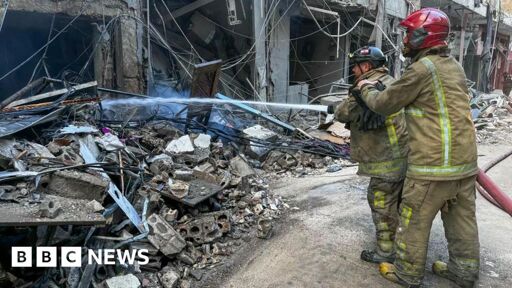These are targeted and deliberate attacks to bring down critical resources and infrastructure. They’ve done this time and time and time again. It’s pretty clear why it keeps happening.
The strike in Douris, near the city of Baalbek, destroyed a building of the civil defence agency, which is linked to the Lebanese government and not affiliated with the Iranian-backed group Hezbollah. The regional governor, Bachir Khodr, said the victims included the city’s civil defence chief, Bilal Raad.
The Lebanese civil defence carries out emergency services including search and rescue work and fire-fighting response.
According to Lebanon’s health ministry, at least 192 emergency and health workers have been killed in Israeli air strikes across the country since the escalation of the conflict with Hezbollah in September.
The attacks come as Israel has intensified its air campaign across Lebanon in recent days, including on Beirut’s southern suburbs, where Hezbollah is based in the capital. The area was hit by air strikes for the fourth consecutive day on Friday following evacuation orders issued by the Israel Defense Forces (IDF), which says it is targeting infrastructure linked to the group.
The Lebanese government says any agreement should be based on the United Nations Resolution 1701, which ended the 2006 war between Hezbollah and Israel. The resolution includes the removal of the group’s fighters and weapons in areas between the Blue Line - the unofficial frontier between Lebanon and Israel - and the Litani River, about 30km (20 miles) from the boundary with Israel.
Israel, however, wants the right to act inside Lebanon if there is any violation of a deal. There are no signs that Hezbollah, or the Lebanese government, are willing to accept such a demand.
Hezbollah has been severely weakened after two months of intense air strikes that destroyed large parts of its infrastructure and killed many of its leaders. But after the initial shock, the group seems to have regrouped, according to analysts, and continues to carry out daily attacks on northern Israel, although not with the same intensity.



